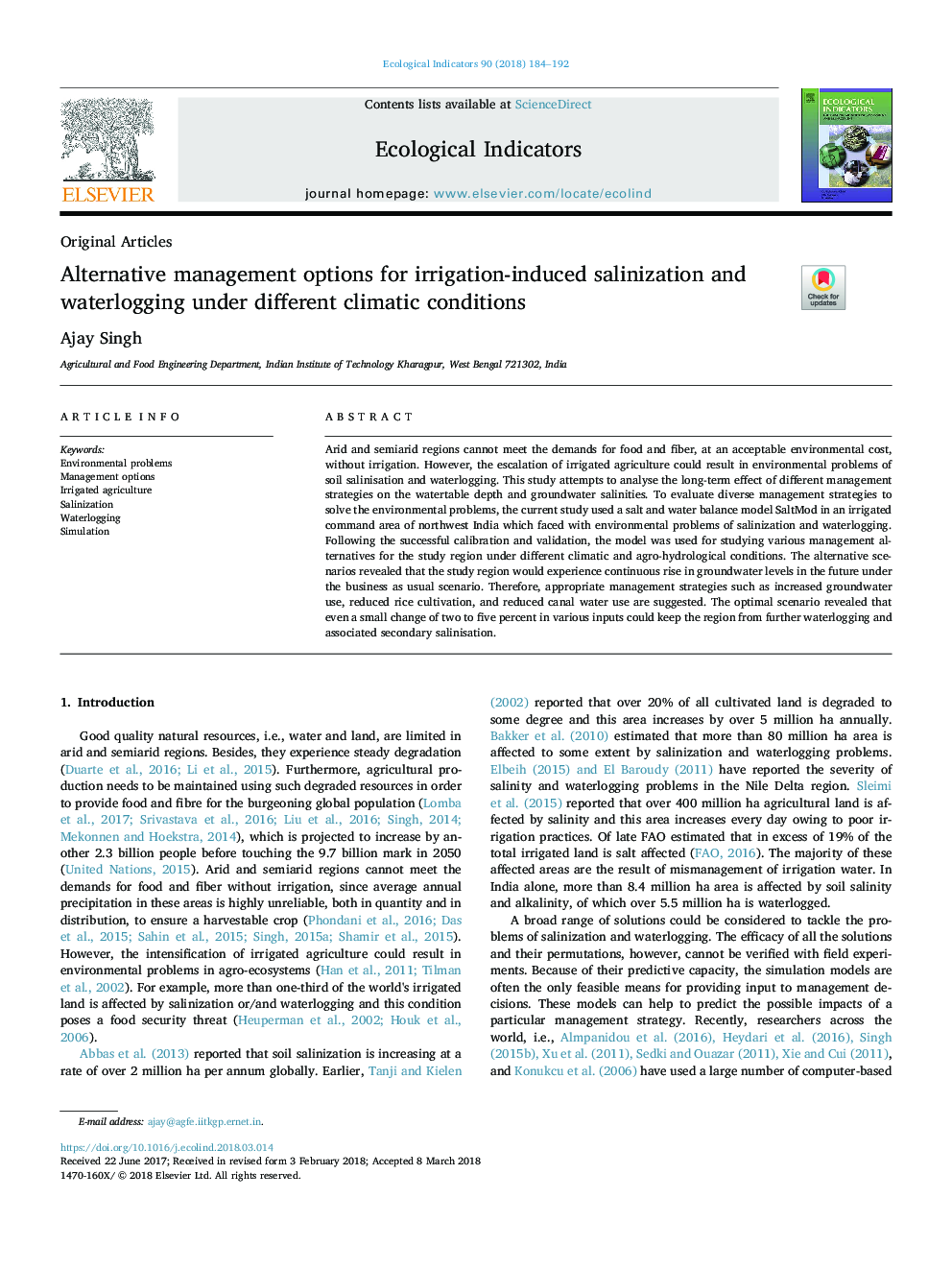| Article ID | Journal | Published Year | Pages | File Type |
|---|---|---|---|---|
| 8845400 | Ecological Indicators | 2018 | 9 Pages |
Abstract
Arid and semiarid regions cannot meet the demands for food and fiber, at an acceptable environmental cost, without irrigation. However, the escalation of irrigated agriculture could result in environmental problems of soil salinisation and waterlogging. This study attempts to analyse the long-term effect of different management strategies on the watertable depth and groundwater salinities. To evaluate diverse management strategies to solve the environmental problems, the current study used a salt and water balance model SaltMod in an irrigated command area of northwest India which faced with environmental problems of salinization and waterlogging. Following the successful calibration and validation, the model was used for studying various management alternatives for the study region under different climatic and agro-hydrological conditions. The alternative scenarios revealed that the study region would experience continuous rise in groundwater levels in the future under the business as usual scenario. Therefore, appropriate management strategies such as increased groundwater use, reduced rice cultivation, and reduced canal water use are suggested. The optimal scenario revealed that even a small change of two to five percent in various inputs could keep the region from further waterlogging and associated secondary salinisation.
Keywords
Related Topics
Life Sciences
Agricultural and Biological Sciences
Ecology, Evolution, Behavior and Systematics
Authors
Ajay Singh,
